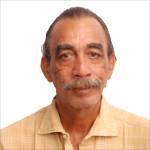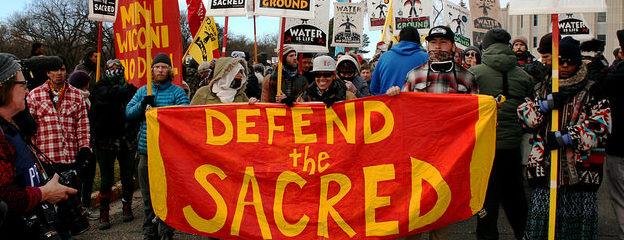Nigeria 2015: the no choice election – By Adewale Maja-Pearce

 I won’t be voting in this year’s election in Nigeria, the fifth since the return of civilian rule in 1999 following many years of the military. It’s partly my fault; partly the fault of the misnamed Independent National Electoral Commission (misnamed because the chair is appointed directly by the president, as he has repeatedly reminded us), which couldn’t find evidence of my 2011 registration despite the obscene amount spent on laptops.
I won’t be voting in this year’s election in Nigeria, the fifth since the return of civilian rule in 1999 following many years of the military. It’s partly my fault; partly the fault of the misnamed Independent National Electoral Commission (misnamed because the chair is appointed directly by the president, as he has repeatedly reminded us), which couldn’t find evidence of my 2011 registration despite the obscene amount spent on laptops.
But no matter; I wouldn’t vote if I could. Neither candidate – still less the parties they represent – will lead this country of embarrassing abundance to the Promised Land. Take the incumbent, Goodluck Jonathan of the People’s Democratic Party (PDP), a Christian from the oil-producing Niger Delta in the south. To say that his performance has been abysmal is acknowledged even by his unsavoury handlers who ceaselessly attempt to counter the widespread notion that their boss is clueless – the adjective most used to describe him – thereby confirming the fact.
It is four years since Boko Haram launched its deadly campaign and yet it is only now that he has seen fit to address it, but only with the assistance of soldiers from neighbouring Chad and Cameroon (along with South African mercenaries), a humiliation for a country whose armed forces were once lauded by the UN for bringing peace to Liberia and Sierra Leone.
On the other hand, his opponent, Muhammadu Buhari of the opposition Alliance for Progressive Change, is a northern Moslem and former military dictator who thought nothing of executing three men with a retroactive decree, allowing for indefinite detention without charge or trial and having people whipped for not queuing at the bus stop. He is also believed by many in the south to be a Boko Haram sympathiser, having previously refused to condemn their murderous activities on the grounds that they were freedom fighters akin to the Niger Delta militants. Claiming now to be a born-again democrat, he has nevertheless insisted that he has no regrets for his past misdemeanours.
There is a perverse irony in the fact that a nation of 170 million people – the so-called “˜Giant of Africa’ – should be pulverized between two candidates who hardly represent the best on offer. Indeed, reading local and foreign reports one would hardly suspect that 10 other candidates are also vying for the top slot come polling day on 28 March. This is deliberate. The Constitution which berthed our recent experiment in democracy, the fourth such since independence from British colonial rule in 1960, ensures that only those with access to the oil money that is the raison d’íªtre of Nigeria can hope to achieve high office. Buhari is no more or less “˜establishment’ than Jonathan. Both are merely tendencies within it, to use old-fashioned Marxist rhetoric.
The irony lies in the fact that these tendencies are now in open conflict for the spoils at a time when the value of this same oil is plummeting in the international marketplace. The point, at any rate, is that the outcome of this titanic battle can make little or no difference to “˜the masses’ – to use Nigerian parlance – who will continue to subsist on a dollar or day in a nation otherwise dubbed too rich to be poor. The fact that it doesn’t stop them from hoping, accounts in large part for the astonishing fact that a member of the reviled Hausa-Fulani aristocracy with unsavoury antecedents should be championed by Jonathan’s otherwise natural supporters, and tacitly acknowledged by Jonathan’s voluble wife, who is currently criss-crossing the country pleading that her husband be allowed a second term on the grounds that he has learned from his past mistakes.
The salient fact about the current elections is the complete absence of any coherent ideas from the two leading contenders about how they propose to “˜move the nation forward’ (as we also like to say). Instead, we are reduced to slanging matches over forged certificates – Did Buhari finish primary school? Did Jonathan get a doctorate in zoology? Salacious gossip – Was Buhari’s wife 10 years old when he married her? Is Jonathan’s wife old enough to be his mother? And plain drivel, with Mrs. Jonathan calling Buhari “as old as Jonathan’s father”, and Mrs. Buhari suggesting that all southern women who fetch up in Italy are prostitutes.
As I write, the smart money is on Buhari, an outcome which “˜the West’ would seem to favour – the Economist of London called him the “˜least awful’ option despite his questionable credentials (not just scholastic) at a time of paranoia against Islamic fundamentalism. But nobody wants to contemplate the disintegration that will surely be the result of another four years of Jonathan’s cluelessness.
Adewale Maja-Pearce is the author of a number of books, the latest of which is a memoir, The House My Father Built. He lives in Lagos, Nigeria.







“an election is nothing more than the advanced auction of stolen goods”
Many years ago, an American civic social commentator published this pithy phrase— ‘An election is nothing more than the advanced auction of stolen goods’ which I believe has civic social prescriptive ordinality in what will shortly be occurring in Nigeria in that this Nigerian civic electoral process will moderate in a sense element most marginal.
Nigeria is now on the cusp of an election to elect a president along with members of the legislature. Citizen Candidates seeking public office in the ideal normative sense of prescriptive governance ought only to be seeking public office in order to serve all the good citizens of Nigeria excluding serving and assisting the elite economic social oligarchy which only will continue and perpetuate the status quo ensuring that civic social change for the ordinary citizen is marginal at best. Nigeria is a country blessed in natural oil which has created and generated much wealth resources. Nigeria is even more blessed with the Nigerian citizen people, who often display exuberant entrepreneurial ambition. Alas, this election is roiled both in fear as to uncertain security publics grounded in future economic growth and in personal private civic social anxiety in how society Nigeria is unravelling. Sadly, this 2015 Nigerian General Election gives ample profound credence to this pithy aphorism by H.L. Mencken who writing in the Baltimore Sun in 1936 suggests most strong that “An election is nothing more than the advanced auction of stolen goods”—–“in other words, government is a broker in pillage, and every election is a sort of advance auction sale of stolen goods”. Mencken was both alarmed and profoundly disquieted as to the lack of engaged inquisitive civic citizen participation in the civic electoral governance process which is predicated on an engaged articulate citizen who is not afraid nor adverse to hold the government to strict account. Mencken was even more concerned as to the increasing growth in blunt force power of the incumbent government to overwhelm the citizen with election promises and election bromides which in reality will signal no change in how government functions in serving the citizen. Sadly, this is not merely an indigenous Nigerian civic electoral issue of absolute concern but rather a civic electoral matter of manifest urgency to all nation states who are engaged in governance conversations between the governed and those who govern.
I don’t believe there is no difference between the candidates. Given the political structure of the country, the APC is the pragmatic alternative: an alliance between a business friendly/technocratic wing under Bola Tinubu and a zealous anti corruption wing ( more authoritarian/statist) under Buhari. It’s also misleading to repeat the claim that Buhari is a Boko Haram sympathiser. The root for that claim is a twisted quote and a general tendency to group all Muslims as natural allies. Buhari’s record against Maitatsine shows that he has no affiliation for Islamic terrorism or insurgents.
Dear Adewale Maja-Pearce,
Isn’t it presumptuous and rather pre-judgemental to jump to a conclusion that none of the two presidential candidates can take Nigeria to the promised land. Particularly when one has had a chance to do so and the other hasn’t. I note this has largely been the argument of those who have given up on the incumbent but dislike the opposition candidate.
You don’t judge an athlete until the race has been run. So let us be patient ans see what happens, when change occurs.
Dear Ben Igiebor
I sympathise. The problem is that Nigerians have been patient for too long. But we shall see. Miracles occur, as they say.